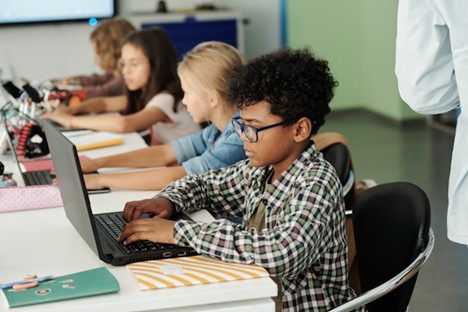
Summer break is a treasured time for students to unwind, discover new hobbies, and connect with friends and family. However, for virtual learners - such as those enrolled in a Pennsylvania cyber charter school - the absence of daily classroom interactions can make summer feel a bit isolating. Unlike traditional school environments where face-to-face socialization happens naturally, online learners may have fewer spontaneous opportunities to connect with peers, making it more challenging to maintain and grow essential social skills during the break.
Yet, these social skills are vital to a child’s overall development. They build the foundation for confidence, empathy, collaboration, and effective communication - all crucial for success in academics and life.
Social skills form the foundation for effective communication and emotional intelligence. For virtual learners, who often engage in digital or remote environments, social skills take on a slightly different shape but are no less important.
Limited in-person interaction: Virtual students may have fewer chances to casually chat with peers or participate in group activities.
Screen fatigue: After spending many hours on video calls or online platforms, some students may feel less motivated to engage socially outside of school.
Dependence on digital communication: Online communication can sometimes lack the nuances of face-to-face interaction, such as body language and tone, which are vital social cues.
Maintaining and developing social skills during the summer helps:
Prepare students for the social demands of the upcoming school year
Technology makes it easier than ever to stay connected with friends, classmates, and extended family - no matter the distance. Virtual hangouts can be informal, fun ways to keep social ties alive.
Ideas:
Schedule weekly video calls with friends or family using platforms like Zoom, Google Meet, or FaceTime.
Organize virtual game nights featuring games like Among Us, Jackbox Games, or online board games.
Host a movie watch party using apps like Teleparty (Netflix Party) where you can watch and chat simultaneously.
Benefits:
These social events provide opportunities to practice conversational skills, teamwork, and digital etiquette.
Many organizations offer virtual summer camps or clubs tailored to various interests, from coding and robotics to art and writing.
How to Engage:
Why It Helps:
Being part of a group with shared interests fosters belonging and encourages positive peer interactions.

While virtual learners are accustomed to digital communication, summer is a great time to deepen these skills.
Tips for Students:
Improving these skills prepares students for respectful, productive interactions both online and offline.
Many nonprofits and community organizations offer virtual volunteering opportunities.
Ideas:
Family relationships are a key part of social development. Summer provides a perfect chance to nurture these bonds.
Activities to Try:
Family game nights or outdoor activities.
Cooking or crafting projects done together.
Storytelling or sharing family history.
Strong family connections provide emotional support and practice in communication and cooperation.
Parents play a critical role in fostering social skills for virtual learners, especially during long breaks.
Help your child set a social schedule that balances virtual and in-person interaction, where possible.
Facilitate virtual meetups with classmates or family members.
Encourage participation in neighborhood or community events that are safe and follow health guidelines.
Children learn a lot by watching adults.
Demonstrate active listening and empathy in your conversations.
Show respectful online behavior and balanced screen use.
Share stories about your own social experiences and problem-solving.
Create scenarios where your child can practice social skills in a low-pressure environment.
Role-play conversations, conflict resolution, or sharing feelings.
Encourage expressing thoughts and feelings openly and respectfully.
Support learning new skills like making introductions or giving compliments.
While digital tools are valuable, face-to-face or outdoor social activities support different types of social learning.
Organize safe playdates or neighborhood meetups.
Plan outdoor adventures like hiking, biking, or sports.
Encourage joining local clubs, camps, or classes when possible.
Stay connected with your child’s teachers and school counselors. They can offer valuable insights and recommend resources or programs to support social development.
Reflection helps students understand their social experiences and improve over time.
Reflection Activities:
Social Journaling: Encourage your child to write about social interactions—what went well, what was challenging, and what they want to improve.
Discussion Circles: Regular family check-ins where everyone shares their social experiences and feelings.
Goal Setting: Help your child set simple, achievable social goals (e.g., “I will ask a new question in my next virtual hangout”).
Summer social practice lays the groundwork for a smooth transition back to school, virtual or in-person.
For virtual learners, summer can be a time of both rest and opportunity. By intentionally nurturing social skills, students can stay connected, grow emotionally, and prepare for continued success. Through virtual hangouts, online clubs, digital communication practice, volunteering, and family engagement, the social side of learning continues to flourish even when school is out.
Families, educators, and students working together can transform summer from a potential period of isolation into a vibrant season of connection, learning, and joy.